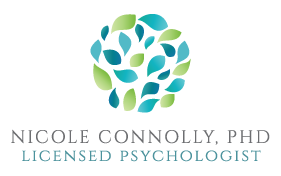Our frequently asked questions:
Why should I see a psychologist?
Therapy can be useful for anyone at any stage of life. Therapy can provide insights into your own patterns of behavior and give you useful tools for changing the way you approach different relationships and situations in your life. Generally, people seek therapy either when they are going through a significant life change or when their problems become too difficult to handle on their own. While there are a number of excellent self-help books, websites, and other resources readily available, sometimes it can be helpful to have a neutral person to talk with to stay on track and to help you see things in a different way.
How do I pick a therapist?
With all the choices of therapists on the market today, it can be a bit daunting to make a selection. As with any other service, it is important to find a professional you feel you can trust. Your therapist should be someone with whom you feel comfortable divulging highly personal and sensitive information. Other factors such as education, experience, treatment approaches, and cost may also come into play when making a decision.
Once you have made the decision to try therapy, it is good to do a bit of research to find a professional who will work well with you. Internet searches, recommendations from family and friends, recommendations from other professionals, and lists of providers from your insurance company are all ways to research your available options. If possible, briefly interviewing therapists by phone can be helpful to form initial impressions of who you might work well with. However, it may be difficult to get a feel for a specific therapist until you are able to meet with them face-to-face.
What happens in therapy?
When you begin therapy, the first few sessions will largely focus on gathering information and working with you to develop a plan for our time together. After that point, the content and structure of our appointments will depend on the current plan and approach. If at any point, you feel that your needs are not being adequately addressed during the standard appointment time, please do not hesitate to bring these concerns to your therapist.
If this is your first time seeking therapy, you may be wondering what it is like to attend a therapy appointment. Many people worry about whether it will be difficult to find things to say or whether they will feel comfortable with talking to the therapist. The media is filled with images and stereotypes about therapy that may affect your expectations about therapy.
Most often, therapy involves sitting in a room and talking with the therapist either one-on-one or with other family members. In our practice, we try to strike a balance between allowing you time to talk about things of importance to you and guiding discussions in ways that are helpful for reaching your goals. Depending on your particular needs, therapy may, at times, occur outside of the usual office setting. The benefits and risks of this sort of intervention will be fully discussed prior to implementing it in the therapy.
For therapy to be effective, it is important to find a therapist that you are able to connect with and trust. During the course of therapy, you may be asked questions about sensitive topics or you may wish to divulge sensitive information yourself. It is up to you how much to share with your therapist, and therapists are bound by strict confidentiality laws. However, it is important to note that failing to divulge important information can have an impact on the effectiveness of therapy.
How Long Do I Need to go to Therapy?
Many people also wonder about how long therapy lasts. There is no one correct answer to this question. The duration of therapy depends on the needs of the individual and the type of therapy we are doing. Generally, we suggest to clients that they should expect to attend a minimum of 4-6 sessions. Most evidence based practice models involve anywhere from 8-10 to 20 or more sessions. In our practice, we have adopted the mantra of “therapy is a tool, not a lifestyle.” We believe that effective therapy can be a valuable tool to improving your life and reaching your goals, but the overall goal is to get you to a point where you no longer need our services.
